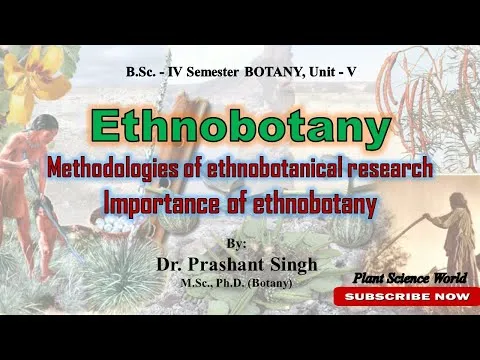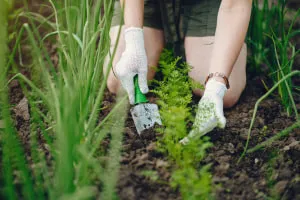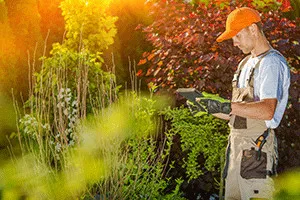
Ethnobotany & Methodologies of ethnobotanical research 
Discover the fascinating world of Ethnobotany and the methodologies of ethnobotanical research with this comprehensive course. Designed for B.Sc.II Year - IV Semester BOTANY students, this course delves into the study of the relationship between plants and people. Explore the traditional knowledge and practices of different cultures, and learn how to conduct ethnobotanical research using various methodologies. With engaging lectures and practical exercises, this course will equip you with the skills and knowledge to understand and appreciate the invaluable role of plants in human societies. Don't miss out on this enriching learning opportunity. Enroll now! ▼
ADVERTISEMENT
Course Feature
![]() Cost:
Cost:
Free
![]() Provider:
Provider:
Youtube
![]() Certificate:
Certificate:
No Information
![]() Language:
Language:
English
![]() Start Date:
Start Date:
2023-04-11 00:00:00
Course Overview
❗The content presented here is sourced directly from Youtube platform. For comprehensive course details, including enrollment information, simply click on the 'Go to class' link on our website.
Updated in [September 27th, 2023]
We considered the value of this course from many aspects, and finally summarized it for you from two aspects: skills and knowledge, and the people who benefit from it: (Please note that our content is optimized through artificial intelligence tools and carefully reviewed by our editorial staff.) What skills and knowledge will you acquire during this course? During this course, students will acquire a range of skills and knowledge related to ethnobotany and methodologies of ethnobotanical research. Specifically, they will learn: 1. Ethnobotanical knowledge: Students will gain a deep understanding of the relationship between plants and human cultures. They will learn about the traditional uses of plants by different communities, including their medicinal, culinary, and cultural significance. 2. Plant identification: Students will develop skills in identifying and classifying plants, including both common and rare species. They will learn about the morphological characteristics of plants and how to use taxonomic keys and field guides for plant identification. 3. Fieldwork techniques: The course will provide students with practical training in conducting ethnobotanical fieldwork. They will learn how to collect plant specimens, record ethnobotanical data, and document traditional knowledge from local communities. 4. Research methodologies: Students will be introduced to various research methodologies used in ethnobotanical studies. They will learn how to design and implement research projects, including data collection, analysis, and interpretation. 5. Ethical considerations: The course will emphasize the importance of ethical conduct in ethnobotanical research. Students will learn about the rights and responsibilities of researchers when working with indigenous communities and traditional knowledge holders. 6. Data analysis and interpretation: Students will acquire skills in analyzing and interpreting ethnobotanical data. They will learn how to use statistical tools and software to analyze data and draw meaningful conclusions from their research findings. 7. Communication skills: The course will enhance students' communication skills, both written and oral. They will learn how to effectively present their research findings to different audiences, including scientific communities and local communities. Who will benefit from this course? This course on Ethnobotany & Methodologies of ethnobotanical research will benefit students pursuing a B.Sc. degree in Botany, specifically those in their second year and fourth semester. It will provide them with a comprehensive understanding of the field of ethnobotany and the methodologies used in ethnobotanical research. Professionals in the field of botany, particularly those interested in studying the relationship between plants and human cultures, will also benefit from this course. Ethnobotanists, researchers, and scientists who aim to explore the traditional knowledge and uses of plants by different communities will find this course highly relevant to their work. Furthermore, individuals working in conservation organizations, environmental agencies, and botanical gardens will gain valuable insights from this course. It will equip them with the necessary knowledge and skills to engage with local communities, understand their traditional plant uses, and contribute to the conservation and sustainable management of plant resources.
Course Provider

Provider Youtube's Stats at AZClass
Discussion and Reviews
0.0 (Based on 0 reviews)
Explore Similar Online Courses

Top 5 FAQ about Programmatic Advertising Grasp with GG GreedyGame

What Is Programmatic Advertising?

Python for Informatics: Exploring Information

Social Network Analysis

Introduction to Systematic Review and Meta-Analysis

The Analytics Edge

DCO042 - Python For Informatics

Causal Diagrams: Draw Your Assumptions Before Your Conclusions

Whole genome sequencing of bacterial genomes - tools and applications

Basics of Horticulture

Fundamentals of Plant Science for Gardeners


Start your review of Ethnobotany & Methodologies of ethnobotanical research